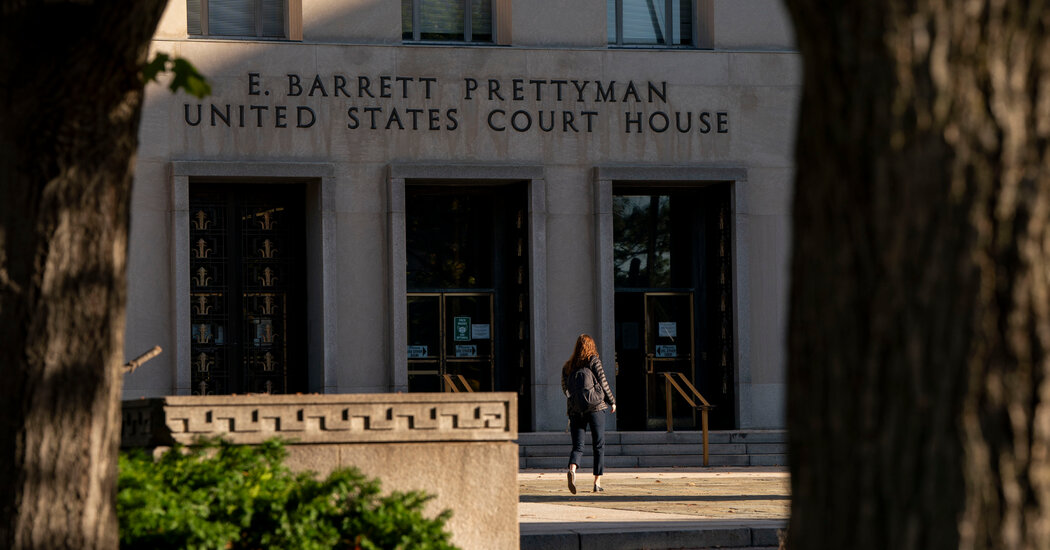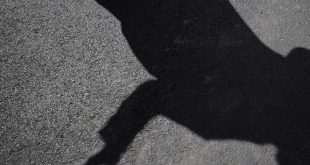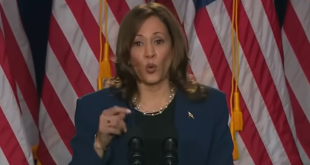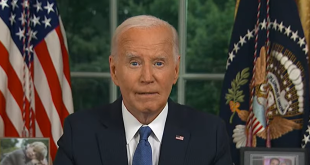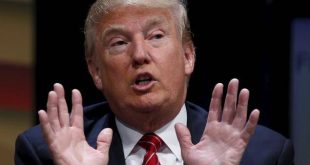A federal judge on Friday rejected claims by former President Donald J. Trump that he enjoyed absolute immunity from criminal charges accusing him of seeking to reverse the 2020 election, slapping down his argument that the indictment should be tossed out because it was based on actions he took while he was in office.
The ruling by the judge, Tanya S. Chutkan, was her first denying one of Mr. Trump’s many motions to dismiss the election interference case, which is set to go to trial in Federal District Court in Washington in about three months. It offered a sweeping condemnation of what Judge Chutkan called Mr. Trump’s attempts to “usurp the reins of government” and cited foundational American texts like the Federalist Papers and George Washington’s farewell address.
Mr. Trump’s lawyers had expected the immunity motion to fail. They have, in fact, been planning for weeks to use the defeat to begin a long-shot strategy to put off the impending trial. They intend to appeal Judge Chutkan’s ruling all the way to the Supreme Court if they can, hoping that even if they lose, their challenges will eat up time and keep the case from going in front of a jury until after the 2024 election.
Mr. Trump’s lawyers first filed their immunity claims in October in a set of breathtaking court papers that maintained he could not be held accountable for any official actions he took as president, even after a grand jury had returned a four-count criminal indictment against him.
Prosecutors in the office of the special counsel, Jack Smith, who is overseeing the two federal cases against Mr. Trump, quickly fired back that the former president should be “subject to the federal criminal laws like more than 330 million other Americans.”
While the Justice Department has long maintained a policy that sitting presidents cannot be charged, Mr. Trump’s bid to claim complete immunity from criminal prosecution was a remarkable attempt to extend the protections afforded to the presidency in his favor.
Just as brazen was the way in which his immunity motion sought to flip the script of the conspiracy case filed against him in August by Mr. Smith. The former president’s lawyers essentially claimed that all the steps he took to subvert the election he lost to President Biden were not crimes, but rather examples of performing his presidential duties to ensure the integrity of a race that he believed had been stolen from him.
Judge Chutkan had little patience for such arguments, saying on Friday evening that neither the Constitution nor American history supported the contention that a former president enjoyed total immunity from prosecution.
“Whatever immunities a sitting president may enjoy, the United States has only one chief executive at a time, and that position does not confer a lifelong ‘get-out-of-jail-free’ pass,” Judge Chutkan wrote. “Former presidents enjoy no special conditions on their federal criminal liability. Defendant may be subject to federal investigation, indictment, prosecution, conviction and punishment for any criminal acts undertaken while in office.”
She added, “Defendant’s four-year service as commander in chief did not bestow on him the divine right of kings to evade the criminal accountability that governs his fellow citizens.”
Judge Chutkan’s decision came on the same day that a federal appeals court in Washington turned down Mr. Trump’s attempts to use a similar argument about presidential immunity to dismiss a group of civil lawsuits seeking to hold him accountable for the violence at the Capitol on Jan. 6, 2021.
In her 48-page order, Judge Chutkan, who was appointed by President Barack Obama, also denied a second — and more far-fetched — attempt by Mr. Trump’s lawyers to have the case dismissed. That effort sought to argue that Mr. Trump could not be tried on the election subversion charges because they overlapped in many respects with his second impeachment, in which he was acquitted by the Senate.
Judge Chutkan further rejected Mr. Trump’s attempt to have the indictment dismissed on free speech grounds, saying that “the First Amendment does not protect speech that is used as an instrument of a crime.”
Still, her decision to turn down Mr. Trump’s claims of presidential immunity was arguably the most significant finding in her order.
The Supreme Court has long held that the Constitution gives presidents immunity from civil lawsuits concerning actions taken as part of their official duties — although not from suits based on private, unofficial acts.
But the decision by Judge Chutkan was the first time a federal court had ruled that a former president did not enjoy the protections of immunity from criminal prosecution. Then again, Mr. Trump is the only former president to have been charged with any crimes — and not just once, but four times in four different jurisdictions.
“While a former president’s prosecution is unprecedented,” the judge wrote, “so too are the allegations that a president committed the crimes with which defendant is charged.”
As part of her order, Judge Chutkan rejected claims by Mr. Trump’s lawyers that by allowing the case to go to trial, it would “bedevil every future presidential administration and usher in a new era of political recrimination and division.”
“Despite defendant’s doom-saying,” she wrote, “he points to no evidence that his criminal liability in this case will open the gates to a waiting flood of future federal prosecutions.”
His lawyers are likely to appeal the decision to a three-judge panel of the U.S. Court of Appeals for the District of Columbia Circuit. If they lose before the panel, they may try again before the full court. Their appeals are likely to continue all the way to the Supreme Court.
Whether the lawyers win or lose, they are hoping that their challenges eat up enough time to delay the trial until after Mr. Trump’s potential return to the White House. If that were to happen, he could order his attorney general to simply dismiss the charges.
 Top Naija News – Nigeria News, Nigerian News & Top Stories Top Naija News – Nigerian Newspapers, Nigerian News. topnaijanews is a daily Nigerian newspaper covering Latest News, Breaking News, Entertainment, Sports, Lifestyle and Politics.
Top Naija News – Nigeria News, Nigerian News & Top Stories Top Naija News – Nigerian Newspapers, Nigerian News. topnaijanews is a daily Nigerian newspaper covering Latest News, Breaking News, Entertainment, Sports, Lifestyle and Politics.
